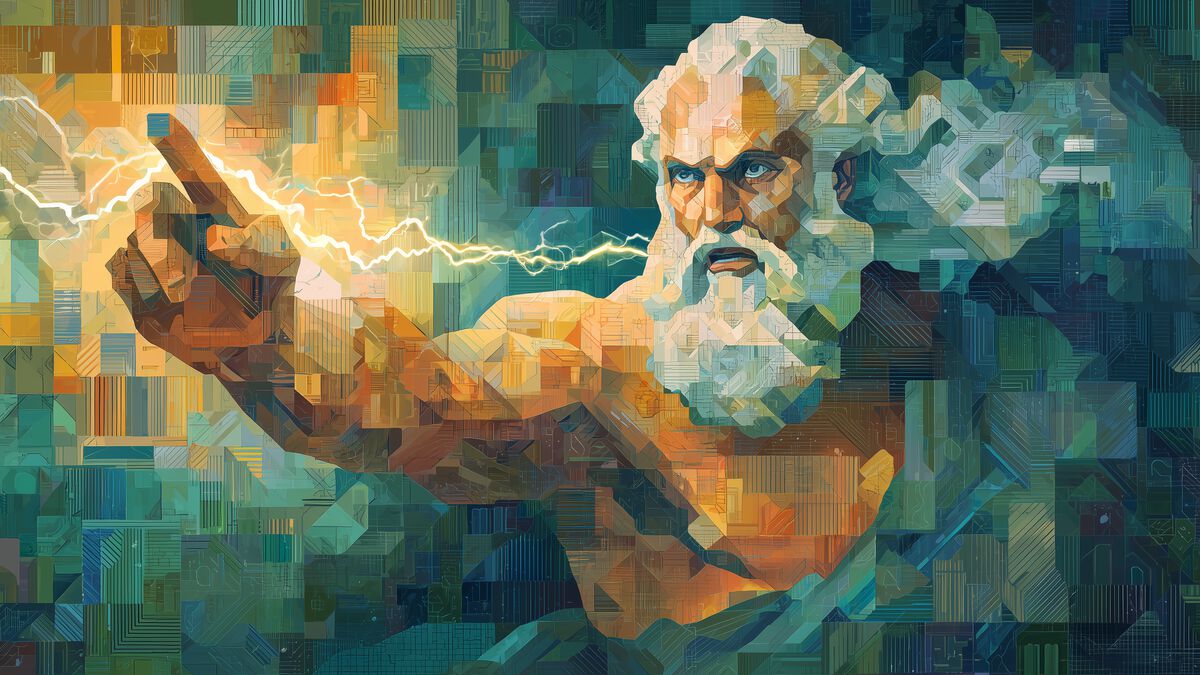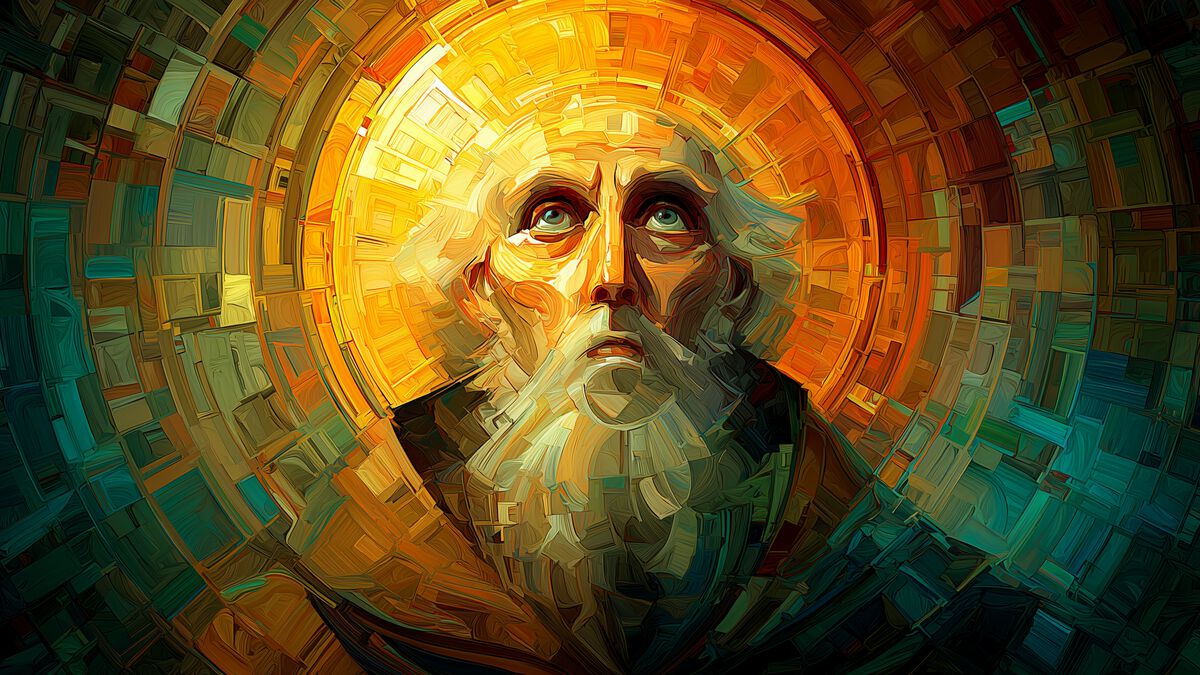Implausible Old Gods and Impotent New Gods
Lincoln Cannon
3 September 2008 (updated 3 January 2026)
Leading evangelical Christian, Albert Mohler, has a history of poor reasoning when it comes to Transhumanism. He recently wrote a blog entry entitled “New God or No God? The Peril of Making God Plausible.” Its publication was coincident with my recent presentation of the New God Argument.
In Mohler’s blog entry, he reviews a book by Mitchell Silver. Silver suggests that liberal theologians have been working to replace the “‘old God’ of biblical theism” with the “‘new God’ of the secular philosophers.” Mohler identifies with the old God theology. And he contrasts the two theological perspectives, explicitly or implicitly, as follows:
| Old God | New God | |
|---|---|---|
| 1 | Biblical | Secular Philosophy |
| 2 | Personal | Principle |
| 3 | Supernatural | Natural |
| 4 | Theistic | Atheistic |
| 5 | Specific | Equivocal |
| 6 | Literal | Metaphoric |
| 7 | Traditional | Popular |
| 8 | Powerful | Impotent |
The new God described in Mohler’s blog entry is not the God proposed by the New God Argument. Moreover, the New God Argument does not contend to propose a new God. Rather, it contends to be a new argument for a particular kind of God that is not new at all, but rather quite ancient.
The new God described in Mohler’s blog entry is the God of some liberal protestants. Although I may agree with some aspects of their perspective, as I may agree with some aspects of Mohler’s perspective, the liberal protestant perspective is not one I would wholly defend. That aside, I do want to comment on each of the contrasts Mohler identified:
1) If the old God is the God preached by traditional Christianity then it is not only a biblical God, but also a secular philosophical God. Christian theology has been repeatedly reconciled with the popular secular philosophy of its day, beginning with neo-Platonism, through Scholastic Aristotelianism, and on to the various contemporary reconciliations.
Mohler’s own Southern Baptist Convention is not immune to the interplay between religious and secular philosophy, as evidenced by their basic statement on God: “The eternal triune God reveals Himself to us as Father, Son and Holy Spirit, with distinct personal attributes, but without division of nature, essence, or being.”
While the Bible does teach of the unity of aspects of God, it does not explicitly teach that the aspects are without division in nature, essence or being. The Southern Baptist Convention can thank the Catholics, who in turn can thank Greek philosophy, for that extra-Biblical interpretation.
2) With Mohler, I see less value in an impersonal God. However, one need not look only to traditional or conservative Christianity to find faith in a personal God. For example, the God advocated in the New God Argument is a person – or persons – and not merely a principle. This God was perhaps once like you and me, and we may perhaps become like this God. As we get to know and become like this God, we may learn to love him. It doesn’t get much more personal than that, but it is hardly a traditional or conservative perspective by contemporary measures.
3) I don’t know anything about a supernatural God, and neither does anyone else except to the extent that they label as “supernatural” the God they experience and imagine naturally. The distinction between natural and supernatural seems to be largely nonsensical. If it can affect my experience, it’s natural, so far as I’m concerned.
I may not understand how it affects my experience. But that doesn’t mean I should assume it is immaterial or causeless – euphemisms for “beyond investigation.” Such assumptions are lazy and dangerous, preventing us from growing in knowledge.
4) If rejection of supernaturalism and immaterialism is atheism then I and a whole lot of other Mormons are atheists, despite our professed faith in God. As presented in the New God Argument, a powerful benevolent creator can be quite natural and material. For those of us who are natural and material, and who express our worship through emulation, only such a God is worthy of worship.
5) I do not perceive the God presented by the Bible, as interpreted by the Southern Baptist Convention or any other religion including my own, to be devoid of ambiguities, paradoxes and some outright contradictions. Despite the powerful inspirational power we find in scriptural texts and our exegesis of them, there is not so much precision as Mohler appears to suggest. If God intended the scriptures to be so precise, perhaps he would have written them in mathematics.
6) The scriptures are rich in symbolism, particularly when describing God. How does one decide where the symbol ends and the literal begins? If Mohler’s concern is that some liberal theologians are making God wholly symbolic, I share his concern to the extent that we do not reify our symbols.
7) Today’s traditional God is yesterday’s popular God, and has been through the ages. Whether traditional or popular, God must be more than we have yet learned, or what’s the bother? I don’t intend to disregard the value of respect for tradition. To the extent tradition is not oppressive, we can all benefit from respecting it, and seeking to integrate its strengths into our learning process.
8) I agree with Mohler that a God that is merely a symbol is far less powerful than such reified into a personal being. Moreover, although Mohler certainly would not agree, an immaterial or supernatural person is far less powerful than a material natural person. The former is, so far as I can tell, indistinguishable from a symbol. Additionally, a God who would limit the education of his creatures to texts written millennia ago seems less powerful than one that would never cease educating.
Mohler considers it perilous to make God plausible. I consider it perilous to make God implausible.
Is it any wonder that religious adherence suffers when we hold dogmatically to ideas that clash with our experience, and our best efforts at rationality and science? Should we be surprised that the spirit of God fails us when we choose to disavow the ongoing flow of knowledge with which God would inspire us?
If we seek to embrace all truth, regardless of its source, we probably will get more of it. We need not pretend to a final understanding of God, to aspire to an understanding that is sufficiently plausible to help us take the next steps toward a better understanding.



